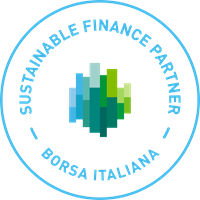On March 12, 2024, the European Parliament voted in favor of the Green Claim Directive, with 467 votes in favor and only 65 against, which has already been approved by the European Commission.
The Green Claim Directive is the institutional response to the phenomenon of greenwashing and misleading advertising on the topic of sustainability.
A directive that was created with the aim of protecting consumers and end users from false claims and generic or misleading labels about the sustainable qualities of products and services, requiring transparency regarding the methodologies used to assess environmental impact, and providing penalties for violations of its requirements.
The regulatory framework introduced by the Green Claim Directive not only protects consumers from misleading information, but also promotes fair competition among businesses by encouraging the adoption of sustainable practices at all levels of the supply chain.
In this content we will elaborate on the principles on which the Green Claim Directive is based and what types of greenwashing conduct it refers to.
What is meant by “Green Claim”?
The Green Claim Directive is part of a series of legislative initiatives aimed on the one hand at protecting consumers and empowering them with respect to purchasing habits and, on the other hand, at inducing businesses to communicate information about the sustainable qualities of products and services in a transparent and clear manner.
The documents that anticipated the directive include the definition of “Green Claim,” which is: “a message or statement having a non-mandatory character, including text and figurative, graphic or symbolic representations, in any form, including trademarks, brand names, company names or product names, that asserts or induces the belief that a given product or professional has a positive or zero impact on the environment or is less harmful to the environment than other products or professionals or has improved its impact over time.”
A September 19, 2023, press release from the European Parliament includes a non-exhaustive list of Green Claims banned by the directive, namely:
- Generic environmental claims, such as “environmentally friendly,” “zero-emission,” “biodegradable,” without the support of documents and certifications to prove it;
- Information about emission offsetting mechanisms, which imply the neutral or reduced environmental impact of products without the possibility of providing proof of what is claimed;
- Uncertified sustainability labels;
- Claims about the life cycle length of products, which cannot be verified;
- Information about the unnecessary replacement of consumables.
The Green Claim Directive requires companies to certify, through accredited bodies and documentation that follow international standards, everything that is claimed to be sustainable, with the onus being on them to make these types of documents and certificates accessible to consumers and stakeholders.
The phenomenon of greenwashing and the difference with greenhushing
The Green Claim Directive was conceived as one of the regulatory tools to counter the phenomenon of Greenwashing, which is increasingly prevalent within the communication strategies of large and small companies.
This is behavior that is, intentionally or unintentionally, misleading with respect to communicating information about the sustainable and environmentally friendly qualities of products and services, and is likely to produce a double harm:
- To consumers and stakeholders, because it alters their perception of the brand;
- To the company that implements it, in terms of corporate reputation and brand reliability.
The reason why, over the past decade, the phenomenon of greenwashing has spread exponentially lies in the attempt of many companies to capitalize on the ever-increasing demand for products and services with neutral or reduced environmental impact, in an effort to create a brand image, precisely, “painted” green.
Practicing greenwashing involves a number of risks of no small magnitude, for example:
- Loss of confidence by consumers, who are now increasingly aware about the use of misleading information about the sustainability of products;
- Absence of improvement of sustainable strategies concretely adopted by the company, especially in the case where greenwashing conduct is not established;
- In the area of finance, missed opportunities to access investment and financing lines dedicated to companies that adopt sustainable initiatives.
Next to the phenomenon of greenwashing, it is possible to place another practice, which represents a kind of boomerang effect of consumers’ growing awareness of misleading information about sustainability: greenhushing.
Greenhushing occurs when companies, in order not to integrate greenwashing conduct, even unintentional, choose not to fully provide information about the sustainable commitment they have undertaken.
A phenomenon that can originate from a variety of causes, including uncertainty about the effectiveness or certifiability of one’s environmental policies, or the lack of consistency of the sustainable actions taken with respect to the sector to which it belongs, or, again, the choice to gain a competitive advantage over companies in the same sector in an opaque manner.
Even in greenhushing it is possible to glimpse a set of conduct that is detrimental to brand reliability, brand reputation, and the social responsibility of the company implementing it, and is by no means an adequate response to the risk of greenwashing.
Communicating sustainability with Tecno
Corporate sustainability communication emerges as a key pillar in the fight against greenwashing, serving as the main tool for prevention and transparency.
This approach not only promotes business credibility, but also facilitates open and honest dialogue with consumers, business partners and all stakeholders.
Effective sustainability communication enables companies to educate their stakeholders about environmental challenges and the actions taken to address them.
Through clear and informative messages, companies can raise public awareness of environmental issues and stimulate more responsible behavior, promptinginnovation and competitiveness within their industryin sustainable terms.
Since these are topics whose management is complex, developing an efficient communication plan about the company’s sustainable policies is a practical and advantageous solution, which also produces considerable effects in the long run, raising awareness of the topic among internal staff on the one hand and the public to whom the information is addressed on the other.
Sustainable communication is a lever for corporate social, environmental and governance responsibility.
At Tecno we can offer you all the support you need in developing your corporate sustainability communication strategy.
Let’s build your sustainable communication plan together.


















